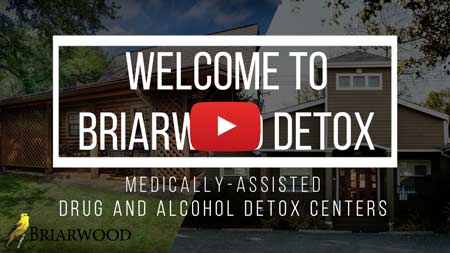
Opioid Crisis is Killing Texas Mothers
Prescription opioid use during pregnancy is high, despite evidence of adverse effects on fetal development.
Table of contents
According to a recent report from KUT, Austin’s local National Public Radio station, the maternal death rate in Texas is very high and drug overdose is the leading cause of pregnancy-associated death in the state.1 Other major causes of maternal deaths in Texas include cardiac events and hypertension/eclampsia.2
A recent report from the Texas Maternal Mortality and Morbidity Review Committee (MMMRC) reveals that opioids were involved in approximately 58% of maternal overdose deaths in Texas—a significant increase in the proportion linked to substance use compared to earlier years. While opioids, both prescription and illicit, remain the most common contributor to pregnancy-related fatalities, public health officials now classify drug overdose as the leading cause of maternal mortality in the state.2
The same report also found that the majority of the maternal deaths occurred more than 42 days after delivery, suggesting that more focus may need to be placed in maternity and postpartum care.
Prescription drug deaths are rising in Texas and all across the United States and have been identified as a major public health crisis. To combat the drug overdose crisis for mothers, the Texas Maternal Mortality and Morbidity Task Force has recommended an opioid prevention and treatment program for pregnant women.
Opioid Use During and After Pregnancy
A comprehensive 2023 literature review published in the Journal of Pediatric Genetics confirms that prescription opioid use during pregnancy remains relatively common, even though medical guidelines advise minimizing opioid exposure due to fetal risk. Research shows that opioid medications frequently cross the placenta, and prenatal exposure has been associated with higher risks of preterm birth, low birth weight, birth defects, and neonatal abstinence syndrome (NAS) in newborns. Long-term follow-up studies increasingly indicate that infants exposed to higher cumulative doses or longer durations of opioids—especially without opioid use disorder—face an elevated risk of neurodevelopmental delays, cognitive challenges, and visual–motor impairments by early childhood, with dose-dependent hazard ratios ranging from 1.2 to 1.7.2,3
Whether for medical purposes or opioid dependency, 21.6 percent of Medicaid-enrolled pregnant women from 47 different states filled at least one opioid prescription during their pregnancy. In addition, among pregnant women enrolled in commercial health plans across the U.S., 14.4 percent of them filled an opioid prescription between 2005 and 2011.3
Some of the most commonly filled prescription opioids included:3
- Codeine
- Hydrocodone
- Oxycodone
- Propoxyphene
All of these prescription opioids are narcotic drugs that are typically prescribed to relieve pain, and each of them is potentially a highly addictive substance.
Women who use prescription opioids during pregnancy may also be at risk for developing addiction and dependence postpartum, which can have devastating effects on new mothers and babies alike.5
What to Do If You or a Loved One Is Struggling with Opioid Addiction
If you or a loved one is suffering from opioid dependence and addiction, you are not alone. Many pregnant women, mothers, fathers, grandparents, and people from all walks of life struggle with the disease of addiction. There is no shame in seeking help.
Codeine, hydrocodone, oxycodone, and/or propoxyphene detox programs are all common and can be very effective in helping addicted individuals overcome their physical dependence before beginning a long-term addiction treatment program.
Overcoming an addiction to prescription opioids is possible and medically assisted opioid drug detox is the safest and most comfortable way to do it. Although Briarwood Detox Center is not equipped to provide medically assisted drug and alcohol detox services to women who are currently pregnant, we can provide assistance to women who have recently given birth as well as men and women of various ages and circumstances.
Whether you need oxycodone detox, propoxyphene detox, or some other type of detox program, call today to find out if our medically assisted detox center and programs are right for you. Please call (888) 857-0557 to speak to an admissions specialist today. We provide oxycodone detox in Austin, oxycodone detox in Houston and oxycodone detox in San Antonio.
References:
- http://kut.org/post/opioid-crisis-killing-texas-mothers-task-force-finds
- https://www.dshs.texas.gov/mch/maternal_mortality_and_morbidity.shtm
- http://www.ajog.org/article/S0002-9378(10)02524-X/fulltext
- https://www.ncbi.nlm.nih.gov/pmc/articles/PMC4795985/
- http://www.pewtrusts.org/en/research-and-analysis/analysis/2017/05/17/opioid-misuse-in-pregnant-and-postpartum-women-is-on-the-rise
Contact Us
[contact-form-7 id=”50″ title=”Contact form 1″]
Recent Blogs
- Your 2025 Guide to Drug & Alcohol Rehab in Austin, TX: Programs, Costs, Insurance & How to Choose
- Low‑Cost Alcohol Rehab in Austin (2025 Guide to Affordable & Free Options)
- Austin Texas Alcohol Rehab: Programs, Costs, Timelines, and How to Choose the Right Level of Care
- Texas Drug Rehab: A Complete 2025 Guide to Detox, Inpatient & Outpatient Care
- Drug Detox Austin: Safe, Medically-Managed Withdrawal and Your Path to Long-Term Recovery
Break Free From Your Addiction Today
(in 3 easy, confidential steps)

Verify your insurance
Complete our fast, free, and easy verification process over the phone to determine the extent of your insurance coverage.

Make an informed decision
We will provide personalized placement recommendations based on your insurance, treatment needs, financial situation, and schedule.

Contact us
Call (888) 857-0557 or fill out our online form for a free and confidential personal consultation with an admissions specialist.